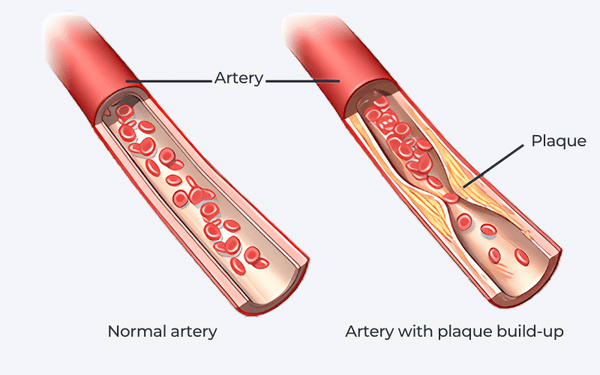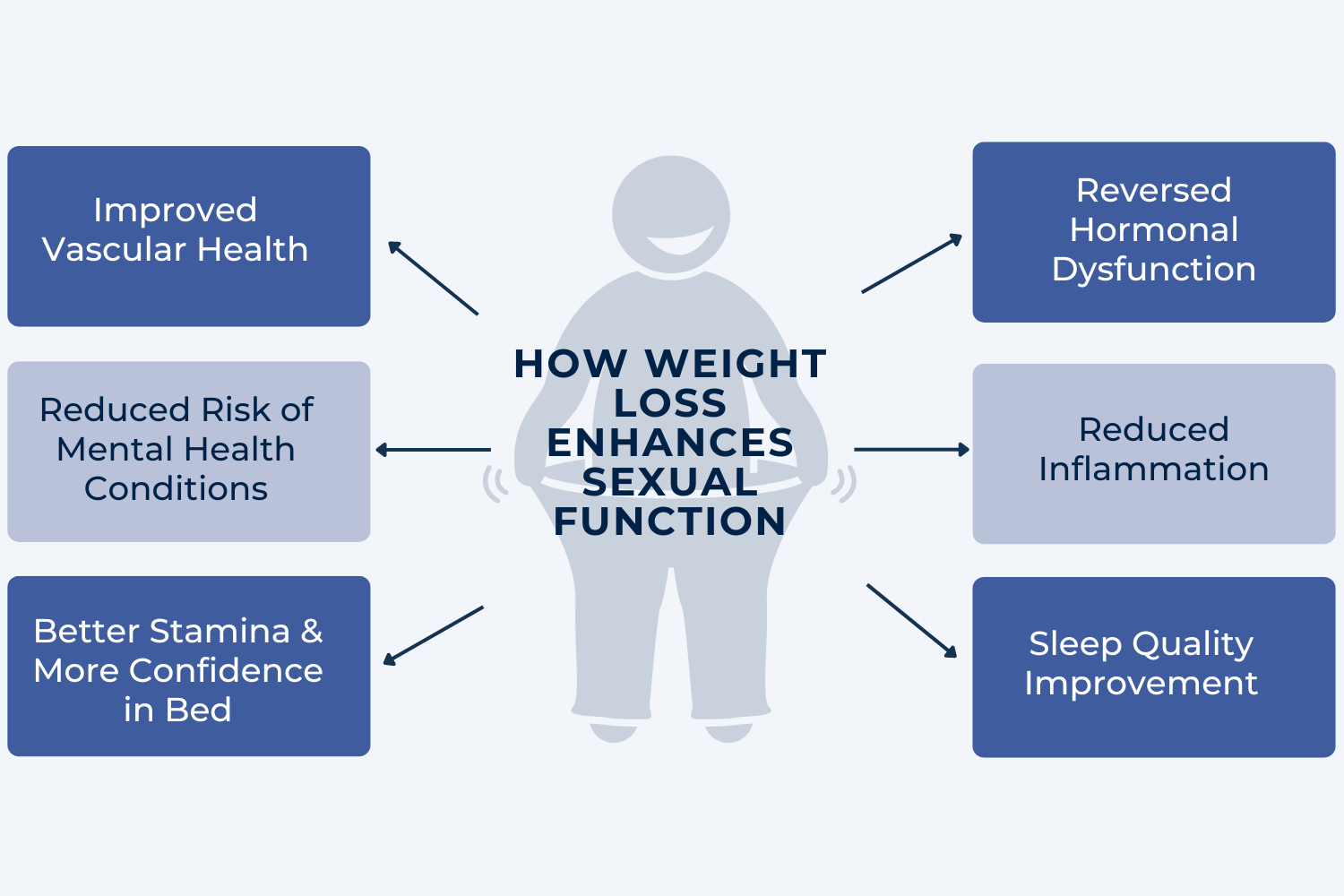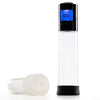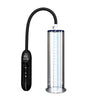Home Knowledge Center
Obesity and ED: Exploring the Link
By Stephen KellyApril 09, 2024 14 min readUpdated:August 05, 2025
Although there are many possible factors that can lead to erectile dysfunction, the links between obesity and ED are considered the most significant.
In this in-depth guide, we'll take a detailed look at how body weight and erectile function are connected.
You'll learn how obesity contributes to sexual dysfunction, how weight loss can improve erectile function, and some of the lifestyle changes weight loss experts recommend to help you work towards normal erectile function.
Obesity and ED: At a Glance
- Obesity's Impact on Erectile Dysfunction (ED): Obesity significantly contributes to ED through physical conditions like diabetes, high blood pressure, and hormonal imbalances.
- Physical and Psychological Factors: Obesity leads to physical health issues (e.g., poor circulation, reduced testosterone) and psychological effects (e.g., anxiety, depression) that impair erectile function.
- Benefits of Weight Loss: Losing weight can improve ED by enhancing vascular health, increasing testosterone levels, and boosting mental well-being.
- Practical Lifestyle Changes: Gradual diet adjustments, regular physical activity, and alcohol moderation are effective strategies for managing weight and improving sexual health.
- Consulting Healthcare Providers: Discussing weight loss and ED with a doctor is crucial for personalized advice and support.
How does obesity impact sexual function in men?
There's no single reason why obesity often leads to erectile dysfunction. Instead, there are a series of issues that can all contribute to a person developing erectile dysfunction. Here, we've broken down the most significant risk factors - looking at both the physical and psychological issues in detail.
Physical factors
The physical health factors that relate to erectile dysfunction include:
1. Diabetes
Type 2 diabetes is a lifestyle-related condition that usually results from poor diet, lack of exercise, and obesity - leading to insulin resistance and impaired blood sugar regulation. According to the American Diabetes Association , around 38.4 million adults in the U.S. are type 2 diabetic, and a further 97.6 million people are likely to qualify as "prediabetic".
The high blood sugar levels associated with diabetes can damage the small blood vessels and nerves that control erectile function, likely reducing the blood flow to the penis that's required to achieve an effective erection.

2. High blood pressure
High blood pressure - also known as hypertension - is a condition where the force of blood against the walls of arteries is consistently too high. This pressure often damages the lining of blood vessels - a condition called "endothelial dysfunction" where the endothelium (the inner lining of blood vessels) loses its normal functions, including the ability to regulate blood vessel expansion.
High blood pressure - also known as hypertension - is a condition where the force of blood against the walls of arteries is consistently too high.
As well as being a significant contributing factor to cardiovascular disease, when obesity leads to hypertension and narrowed blood vessels, it reduces the amount of blood that can be pumped into the penis when a person becomes aroused - making a full erection less likely.
3. Atherosclerosis
Atherosclerosis is a condition that results in the build-up of plaque within the body's arteries. Atherosclerosis is caused by a series of factors, including high cholesterol, high blood pressure, smoking, diabetes, obesity, low physical inactivity, and an unhealthy diet - and the resulting plaque narrows arteries, including those in the penis.
Diagram of Atherosclerosis

Photo Credit: John Hopkins Medicine
Like other conditions that result in narrowed blood vessels, atherosclerosis again reduces the amount of blood that can engorge the penis when a person becomes aroused - often resulting in the inability of an obese person to achieve an effective erection.
4. Reduced testosterone levels
Testosterone plays a key role in the different mechanisms of sexual desire and arousal - including nitric oxide production, an important part of achieving and maintaining erections. When the body produces nitric oxide, the muscles in the penis respond by relaxing - allowing blood to more freely enter the soft muscle tissues.
When obesity leads to reduced testosterone levels, nitric oxide production is also reduced - and the penis then doesn't allow as much blood into the smooth muscle tissue, limiting the blood flow and the quality of an erection.

5. Physical limitations
Looking back through human history, widespread obesity has been minimal, which means our bodies have not developed to carry additional weight. As a result, the additional strain of excess weight can result in significantly lowered sexual function.
Joint pain, shortness of breath, and fatigue are common issues that go alongside obesity, and each of these can have a significant impact on the enjoyment of sex. When physical stimulation is more difficult or goes hand-in-hand with discomfort, the body is subject to a stress response, which inhibits the hormonal pathways involved in sexual desire. This kind of stress response will almost always lead to reduced levels of the hormones required to get and maintain an erection.
6. Sleep apnea
Sleep apnea is a sleep disorder characterized by repeated interruptions in breathing during sleep, leading to poor sleep quality and decreased oxygen levels in the blood. Sleep apnea is strongly linked to obesity - often due to excess weight around the neck, increasing the chance of airway obstruction during sleep.
Although the ability to sleep isn't directly connected to the ability to achieve an erection, the side effects of the condition are.
Disrupted sleep and lowered oxygen levels can lead to fatigue, reduced testosterone levels, and impaired vascular health. These factors can decrease libido and impair the physiological processes necessary for achieving and maintaining an erection, contributing to erectile dysfunction.
Emotional/Psychological factors
The emotional or psychological factors that relate to erectile dysfunction include:
1. Reduced self-confidence
Although most people think about the impact on women's psychology when it comes to looking a certain way, a pioneering UK study) found that 28% of men surveyed struggled with body image issues. What's more, 11% of the men asked said they'd experienced significant mental well-being issues because of their own perception of their body.
If these figures are even close to representative of U.S. males, it would suggest that over 35 million American men are concerned about their bodies - something which could significantly impact erectile dysfunction. A lack of confidence can lead to avoidance of sexual encounters, difficulty becoming sexually aroused, and challenges in maintaining erections owing to psychological stress responses.
2. Anxiety
At the core of anxiety issues is the human "fight or flight" response to perceived danger. While the idea of intimacy might not seem like the type of danger that led to this response developing in humans, the same stress reaction can occur if a person feels the possibility of rejection or the emotional damage/stigma of not being able to perform sexually because of their weight.
At the core of anxiety issues is the human "fight or flight" response to perceived danger.
Anxiety in this situation will create the same stress response as a physical danger - with the release of hormones like cortisol and adrenaline. These hormones can constrict blood vessels, reduce blood flow to the penis, and divert energy away from non-essential functions, including sexual activity, thereby impairing erectile function and contributing to erectile dysfunction.
3. Depression
While "body confidence" is a popular subject in the media, the reality is that obesity is still significantly linked to depression through a complex interplay of physiological, social, and psychological factors. In fact, studies show that people suffering from obesity have a 55% elevated risk for developing depression..
Diagram of Obesity - Inflammation - Depression Cycle

Physiologically, obesity can alter brain function and hormone levels , affecting mood regulation. Depression, in turn, can lead to erectile dysfunction due to its impact on a person's psychological state and neurochemical balance. When this occurs, a person's sex drive can be significantly reduced, and the pathways in the brain that link sexual arousal and response can be disrupted. This is another example of a medical area where obesity doesn't directly connect to ED - but instead can encourage a condition that does have a direct impact on sexual function.
How losing weight can improve your sexual function
If you're obese and facing ED, you might feel like there's a mountain to climb to regain normal erectile function - but this isn't necessarily the case. Peer-reviewed studies show that the act of simply losing weight can improve the sexual health of obese men. Put simply, a person doesn't have to reach a low target weight to see improvements in ED symptoms; they simply have to be on a gradual weight-loss path.
How weight loss Enhances Sexual Function

As you begin losing weight, you'll likely see the following sexual well-being effects:
1. Improved vascular health
Weight loss significantly enhances blood circulation by reducing inflammation and decreasing the risk of vascular diseases that can block blood flow, essential for maintaining erectile function.
This improvement in vascular health is crucial for achieving and maintaining erections.
This also means the health of the endothelium - the inner lining of blood vessels - improves, facilitating better blood vessel dilation needed for erections. This is because a healthier endothelium responds more effectively to signals that initiate the widening of blood vessels, enabling sufficient blood flow for erectile function.
2. Reduced risk of mental health conditions
Losing weight and seeing your body change in the mirror often inspires general positive feelings - and these feelings are supported by complex biochemical changes within the body. Firstly, there are changes to brain chemistry - such as
Weight loss also reduces inflammation in the body, which in turn can lead to a reduction in the symptoms of depression.
What's more, achieving weight loss often leads to improved insulin sensitivity, which can stabilize blood sugar levels, reducing mood swings and irritability. A better mood, combined with a reduction in the issues that poorly managed blood sugar levels can have on sexual function, is highly likely to result in reduced erectile dysfunction symptoms.
3. Better stamina and more confidence in bed
Even moderate weight loss is shown to improve stamina (also known as "endurance") in obese adults. This boost in stamina allows for longer, more vigorous sexual encounters without the fatigue or shortness of breath that can impair erectile function and overall sexual performance.
While the gentle exercise that results in building stamina has a series of positive effects on virtually all of the health conditions we've listed above - it also has a significant positive effect on satisfaction levels. A more satisfying sexual experience for both partners reinforces a positive cycle of sexual confidence and well-being.
4. Reversed hormonal dysfunction
Studys show that losing weight can reverse hormonal dysfunction by normalizing levels of hormones that are critical for sexual function - such as testosterone. Excess fat, especially abdominal fat, can lead to increased production of estrogen and lower testosterone levels, which are directly linked to erectile dysfunction (ED) symptoms.
5. Reduced inflammation
For many people, inflammation is likely to follow obesity. Frustratingly though, the effect that inflammation has on the body also makes it more likely that a person will continue to gain weight - creating a cycle of inflammation and weight gain.
For many people, inflammation is likely to follow obesity.
Since inflammation is another medical issue that causes blood vessel damage, it can have a significant effect on penis function. Fortunately, though, weight loss is considered a critical factor when it comes to reducing inflammation - easing the chances of both continual weight gain and blood vessel damage that can prevent a person from getting an erection.
6. Sleep quality improvement
As we have discussed above, sleep issues - especially sleep apnea - are linked to decreased oxygen levels and fragmented sleep patterns, which can impair the body's ability to produce testosterone, a hormone crucial for erectile function.
Weight loss can reduce the pressure on the respiratory system, leading to better oxygenation and more restful sleep.
Improved sleep enhances hormonal balance, particularly increasing testosterone levels. Also, reductions in fatigue that come from poor sleep can also improve a person's mood and reduce susceptibility to poor mental health - all of which can mitigate erectile dysfunction (ED) symptoms.
Lifestyle changes you can do to improve your situation
With such strong links between obesity and erectile dysfunction, it can be quite overwhelming to know how to begin turning a corner if you carry extra weight and suffer from ED.
If you're considering lifestyle changes in an effort to lose weight and improve erectile dysfunction, it might surprise you to hear that both fitness and medical professionals recommend against making huge changes all at once. Why? Well, most weight loss strategies don't work long-term. In fact, they can often lead people to become frustrated and disheartened - after all, who wants to sit at a BBQ or ball game thinking they can never eat a hotdog again?
Instead of feeling like you've got to severely restrict your diet or start running a half-marathon every morning, it's good to understand exactly how powerful it can be to make small changes over the course of weeks and months.
Let's take a closer look:
Diet changes
You won't have to look far online to find people suggesting you carefully count calories or cut full food groups out of your diet to lose weight. While some people see a benefit in counting calories or making severe restrictions, it can be very hard to do - and it can be disheartening to feel like you have to measure or weigh every portion. Equally, it's just not realistic for most people to face never consuming carbohydrates again.
Instead, keeping an honest food diary is a great idea. Keep a general eye on calories and portion size - but also look at what the food you're eating contains. Try to:
| TRY TO | NOTES |
| Limit the amount of added sugar you consume | Be aware of soda, candy, baked goods, ice cream, and fruit juices. |
| Increase the amount of fiber in your foods | Aim for fiber-rich foods - such as whole grains, green vegetables, oats, and pears. |
| Make sure you get plenty of protein | Such as chicken, fish, beef, pork, eggs, quinoa, and Greek yogurt - as these help to keep you feeling full. |
| Try to base your eating on "whole foods" | I.e. minimally processed foods that are close to their natural state - meat, vegetables, fruits, nuts, pulses, etc. |
A food diary will help you to become aware of what and when you eat - then you can start making changes in problem areas you see. If you need another opinion or a deeper understanding of changes you can make, your doctor will be able to help.
Physical activity
When it comes to physical activity, consistency is key. Don't be tempted to commit to daily gym sessions or grueling workouts from the get-go - you're likely to kill your motivation quickly. Also, hard workouts can increase your appetite - which can lead to weight gain rather than loss.
For the most effective ways to exercise, consider the following:
| WAYS TO EXERCISE | NOTES |
| Aim for more walking |
Using your phone's step counter will make you aware of how many steps you take each day. Start by trying to build on this amount each day. Even just taking the stairs, going for a walk after a meal, or parking further from your destination all help your body burn fat over time. |
| If you do want to workout at the gym, focus on strength rather than cardio fitness | An exercise bike will help you burn a couple of hundred calories when you're on it - but working your muscles through resistance training will mean your body continues to burn calories as your muscles recover and become stronger. |
| Add manageable exercise to your routine |
Start with 5-10 minutes of movement every day. It's a good idea to do it early, perhaps just after getting up. Use a free app or online video to coach you through some bodyweight exercises - it'll burn some calories, get you used to moving, and likely give you a feel-good hit of hormones to start your day. |
Alcohol
Moderating your alcohol intake is often a crucial part of effectively losing weight. Alcoholic drinks are often very high in calories with little or no nutritional value. What's more, alcohol lowers inhibitions - which can make it much harder to resist the foods you're trying to cut down on.
Aside from the weight loss benefits of reducing your alcohol intake - alcohol and erectile dysfunction have proven links, not least because of the hormonal imbalance it can create, the liver damage it can cause, the fact that it can contribute to heart disease, and the nervous system problems it can create.
Moderating your alcohol intake is often a crucial part of effectively losing weight.
Unless a doctor says otherwise, no one is suggesting you should quit drinking completely. Instead, you should aim to become aware of how alcohol may be hindering your weight loss, then try to adjust your consumption accordingly.

Consult a doctor
While the recommendations we've outlined here can be useful - it's also important to talk to your doctor about trying to lose weight before you start. Everybody's physique and medical history are different - but your doctor will be able to look at any underlying conditions you have that could be contributing to weight gain and then give you personalized advice about making changes.
While the recommendations we've outlined here can be useful - it's also important to talk to your doctor about trying to lose weight before you start.
Your doctor will also be able to look at any medications you're on and consider whether they're having an impact on your weight or the ability to lose weight. They may even be able to refer you to specialists - such as dietitians, endocrinologists, or therapists - who can offer additional support and guidance.
Obesity and Erectile Dysfunction FAQs
Can belly fat cause ED?
Belly fat can contribute to erectile dysfunction (ED). Excess abdominal fat is associated with conditions that impair blood flow and hormone levels, such as diabetes, high blood pressure, and reduced testosterone levels.
These conditions can directly impact the ability to achieve and maintain an erection.
What's more, the production of nitric oxide, crucial for erectile function, can be hindered by obesity. Reducing belly fat through lifestyle changes, including diet and exercise, can improve these underlying conditions and potentially reduce the symptoms of ED.
Can losing weight help with ED?
Yes, losing weight can significantly help with erectile dysfunction (ED). By reducing weight, men can improve cardiovascular health, enhance blood flow, and address metabolic conditions like diabetes and hypertension that are closely linked to ED.
Additionally, weight loss can lead to hormonal balance, particularly increasing testosterone levels, which play a critical role in sexual function.
Adopting healthier lifestyle choices, including a balanced diet and regular exercise, not only aids in weight management but also in improving overall sexual health and reducing ED symptoms.
Can obesity medications cause ED?
Yes, some obesity medications and medications for obesity-related conditions, like antidepressants for depression, can have side effects that impact erectile function. These drugs can alter hormone levels, blood flow, or neurological responses, potentially contributing to erectile dysfunction (ED).
It's important for individuals taking these medications to discuss potential side effects with their healthcare provider, as adjustments or alternative treatments may mitigate ED symptoms. Managing obesity through lifestyle changes and closely monitoring medication effects can help reduce ED risks while addressing obesity and its related conditions.
Summary
Obesity is a problem that can contribute to erectile dysfunction in a number of ways. Scientists consider it an "independent risk factor" - which means obesity alone, without considering the other conditions it causes, can have an adverse effect on normal erectile function.
Obesity is a problem that can contribute to erectile dysfunction in a number of ways.
In addition to this, obesity can be the main cause of many other conditions that can damage the function of the penis - including hypertension, inflammation, diabetes, atherosclerosis, reduced testosterone levels, and a number of mental health concerns.
The good news is, that losing weight in an effort to reduce the symptoms of erectile dysfunction doesn't have to be a life-changing challenge. Becoming more aware of what you eat and adjusting toward healthier foods, introducing some manageable exercise, and moderating your alcohol intake can all help with fat loss, which in turn can reduce ED symptoms - even in the early stages of weight loss.
If you feel like losing weight could help with restoring a healthy sexual function, start by talking to your doctor.
They will be able to make some personalized recommendations they believe will work for you - and they may be able to connect you with other professionals and services that can support your journey too.
Discover how various health factors contribute to erectile dysfunction
Explore our blogs for valuable insight:
- Erectile Dysfunction: Symptoms, Diagnosis and Causes
- Alcohol And ED: What You Need to Know
- Smoking and ED: What You Need to Know
- Can Sexually Transmitted Infections (STDs/STIs) Cause ED?
- Can Dehydration Cause Erectile Dysfunction (ED)?
- Ozempic (Semaglutide) And ED: What You Need To Know
- Stress and ED: How Can Stress Hurt your Erections and What Can you Do?
- The Best Foods for Your Penis











